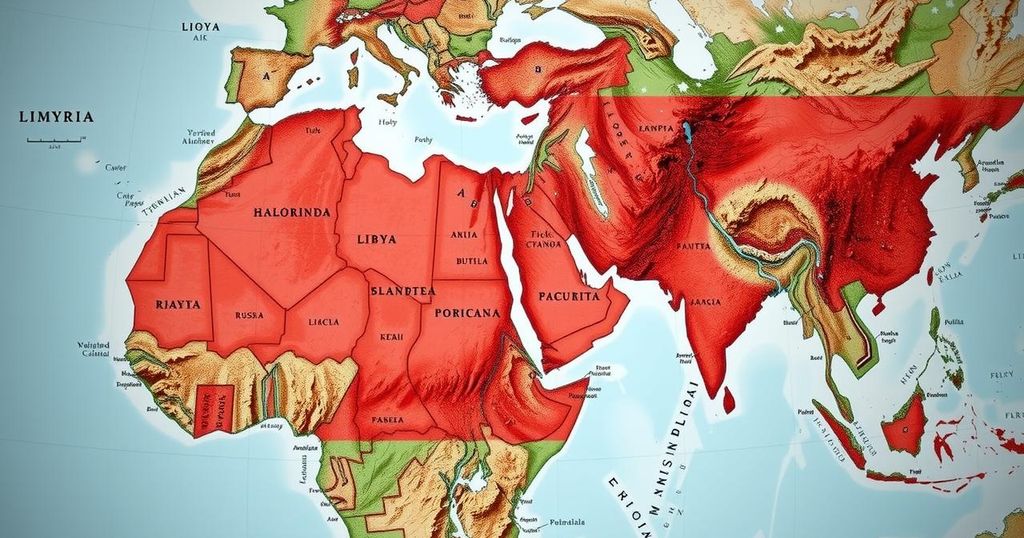The shift in power in Syria has prompted Russia to refocus its military efforts towards Libya, seeking to consolidate its influence in Africa amidst declining prospects in Syria. Support for the eastern Libyan commander Khalifa Haftar highlights this strategic pivot, as Moscow aims to counteract Western interests and expand its military presence in the region.
The recent political developments in Syria, particularly the transition of power away from the Assad regime, have compelled Russia to reevaluate its strategic interests in the region. With its established military presence in Syria now in jeopardy, particularly under the leadership of the newly appointed Ahmed al-Sharaa, experts indicate that Moscow is turning to Libya as a pivotal alternative for consolidating its influence in Africa. Russian operatives, including mercenaries, have been actively supporting Khalifa Haftar’s efforts to maintain control in Eastern Libya against the internationally recognized Government of National Unity (GNU) based in Tripoli.
Russia has been reinforcing its military capabilities in Libya, with recent reports revealing the transfer of substantial military resources from Syria, including advanced defense systems such as the S-300 and S-400 anti-aircraft batteries. Additionally, Russian military personnel have been incrementally deployed, with figures reported at approximately 800 troops as of February 2024, increasing significantly by May of the same year. This escalation underscores a strategic pivot, as Moscow aims to safeguard its military missions in Africa amidst the deterioration of its Syrian foothold.
The ramifications of this strategy are notable, as the Kremlin seeks to disrupt Western interests while leveraging Libya’s fragmented political landscape. Analysts, including Jalel Harchaoui of the Royal United Services Institute (RUSI), emphasize that Russia’s actions are not merely a replacement of proxies but rather a method to sustain its strategic position in a crucial region. Furthermore, there is an increasing concern among Western nations and neighboring states regarding the implications of heightened Russian involvement in Libya. As the situation evolves, it remains to be seen how effectively Moscow can navigate the complex political dynamics within Libya, especially with competing influences from Turkey, Egypt, and the United Arab Emirates, who also have vested interests in the ongoing conflict.
The geopolitical landscape of Libya has become increasingly complex since the fall of Moamer Kadhafi in 2011, which fragmented the country into rival factions. The Tripoli-based Government of National Unity enjoys UN recognition and is backed by Turkey, while Khalifa Haftar commands forces in eastern Libya, receiving support from Russia and other nations. The recent power shift in Syria has made it necessary for Russia to find alternative bases for its military operations, with Libya emerging as a crucial strategic asset amid concerns about Western encroachment and NATO’s presence in the region. This shift in Russian focus signals an important recalibration in its approach to international relations in North Africa and beyond.
In summary, Russia’s strategic pivot from Syria to Libya reflects its need to adapt to changing political dynamics and safeguard its influence in Africa. The reassignment of military resources, an increase in Russian personnel, and the pursuit of military alliances with local factions underscore Moscow’s commitment to establishing a foothold in Libya. However, the complexities of Libyan politics and the involvement of competing international powers present significant challenges that Russia must navigate carefully as it seeks to maintain its objectives in the region.
Original Source: www.france24.com






